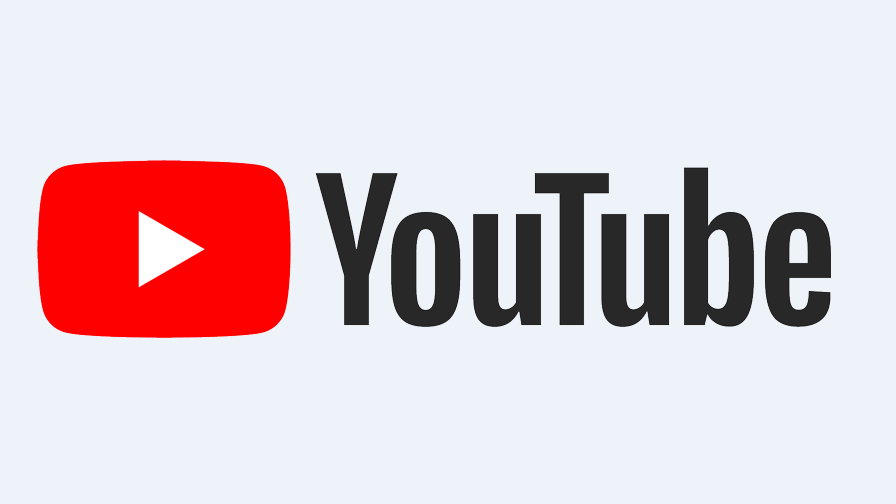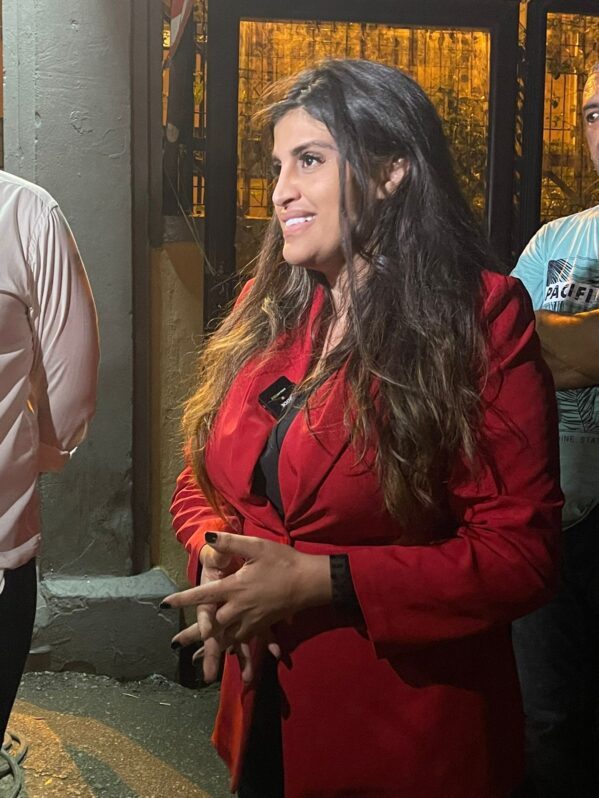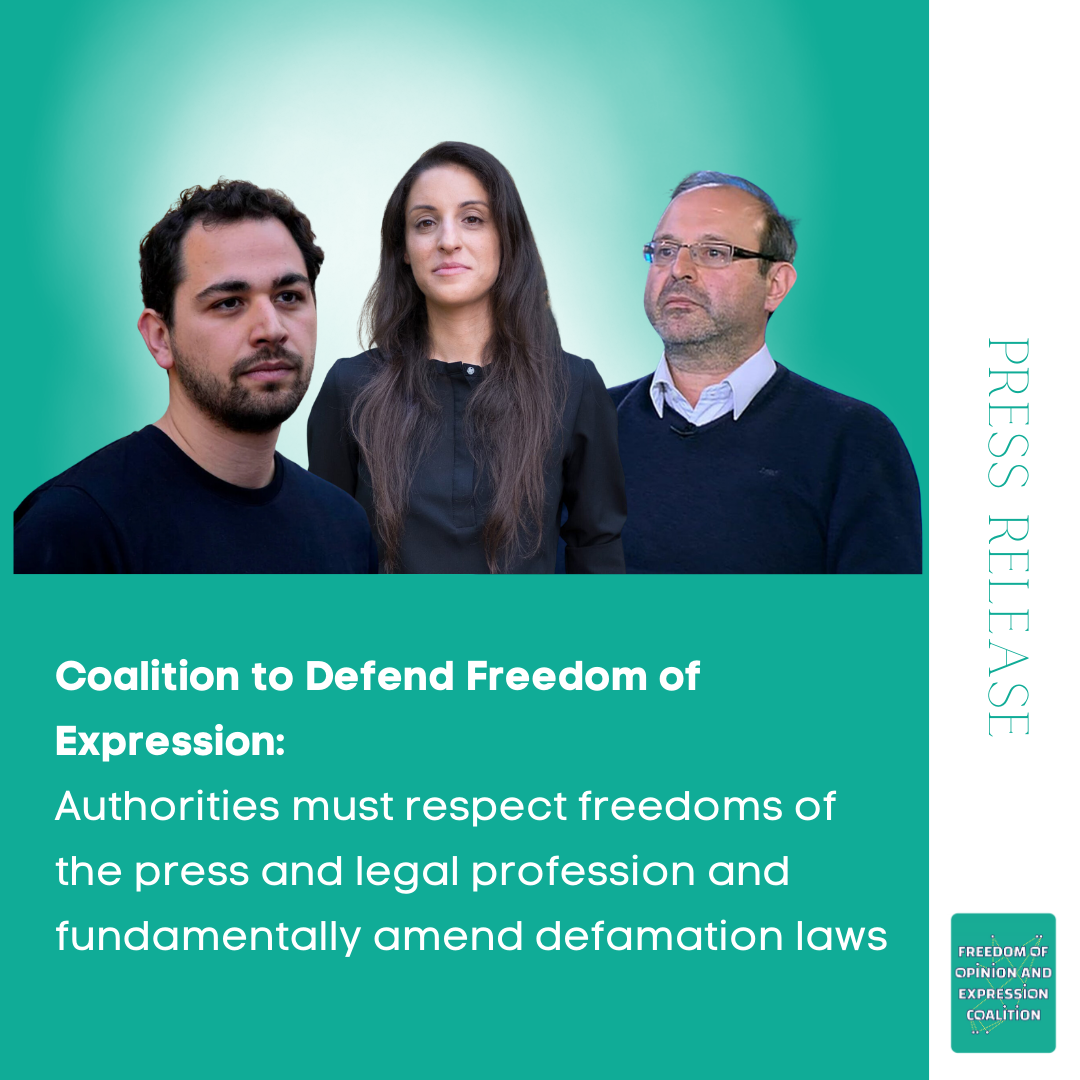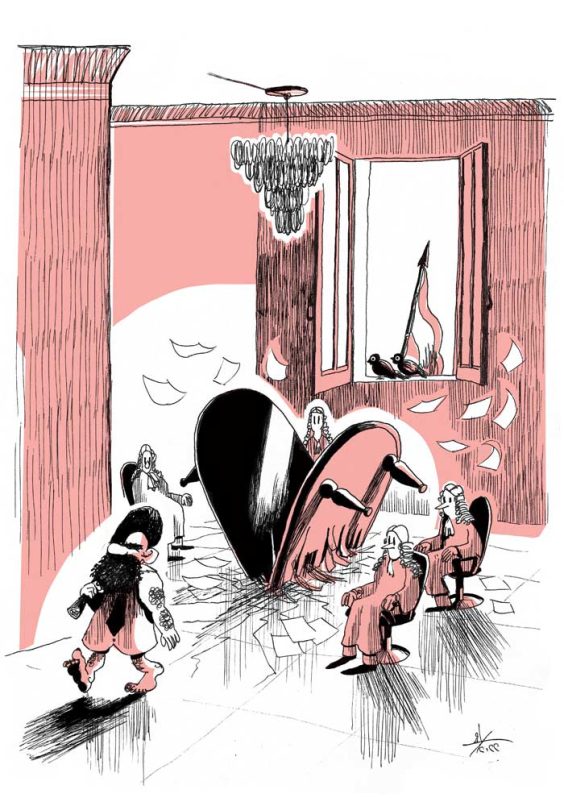Egypt’s Supreme Administrative Court Blocks YouTube

Last May, Egypt’s Supreme Administrative Court issued a ruling[1] upholding the Court of Administrative Justice’s ruling to shut down YouTube for one month.[2] The punishment was inflicted because in September 2012, some of the website’s users were published a film titled The Innocence of Muslims, or clips from it, that were described as offending Islam.
The court stated that although Egyptian laws have not defined the cases in which websites may be blocked, the government has the right to block websites if they compromise national security or to protect public order. The court held that showing the aforementioned film on YouTube negatively affected national security, which justifies blocking the site.
This ruling triggered a debate about the technical difficulties of blocking websites and raised questions about the social utility and economic cost of doing so, especially nearly six years after the offensive film appeared. Moreover, from a legal angle, the ruling presents more questions than answers. This article shall address those questions.
The Origin of the Jurisprudence on Blocking Websites
Since 2007,[3] the State Council courts have derived the power to block websites by reasoning that even though Egyptian laws have not defined the cases in which websites may be blocked,the government may block websites when national security and the state’s higher interests are compromised, in order to protect public order. This should occur under the oversight of the judiciary, which intervenes when the government fails to act by compelling it to issue the block.
However, this jurisprudence ignores the reality that blocking websites under any circumstances is a restriction of freedom of expression and the right to information, which are constitutional rights.[4] Hence, in our view, it falls within the category of punishment or penalties. Consequently, from the perspective of the rule of law, it must be inflicted by a judicial ruling, there must be a basis for inflicting it in law, and the delicate balance between the exigencies of the right and restrictions imposed upon it must be taken into account.
Blocking is a Punishment that Requires a Court Ruling
When the constitutional legislators stipulated that a punishment can only be inflicted via a judicial ruling,[5] they intended for the judicial authority alone to have the jurisdiction to inflict punishment. Similarly, they did not restrict the term “punishment” to criminal punishments; rather, the term also encompasses – as deemed by the Supreme Constitutional Court – punishments of other natures, such as deprivation of specific rights and freedoms. In other words, a punishment need not be punitive or correctional; rather, it may be merely preventative.[6] Hence, the judicial perspective that the government has the power to block websites is akin to the judiciary relinquishing one of its inherent jurisdictions to the executive authority. The judiciary is not authorized to perform such a relinquishment as it undermines the judicial authority’s independence, which has been adopted as a basic safeguard of rights and freedoms.[7]
The legality principle (that no action may be criminalized except via a law and no punishment may be imposed except by a judicial ruling) is not limited to penal sanction but rather applies to other types of sanctions as well even if they are of a different kind
Blocking is a Punishment with No Legal Basis
The Constitution obliged the state to protect citizens’ right to use all means of public communication (such as the internet). It also stipulated that these means of communication may not be disrupted, stopped, or withheld from citizens arbitrarily, and that the cases that require such action be regulated via a law issued by the legislative authority.[8] Hence, in the absence of legislation regulating and addressing cases of blocking or closing websites, there is no place for jurisprudence reasoning that the judiciary has the power to issue rulings to block or shut down websites or that the government has the power to make decisions to the same effect.
The ruling stated that the government’s right to block websites is based on its power in the area of administrative control to protect public order.[9] We disagree because methods of administrative control are inherently preventative and may not transform into a punishment or penalty such as a block.[10] Similarly, these methods must never violate the Constitution, which entrusted the legislative authority alone with determining, via a law it has yet to issue, such cases in which websites can be blocked.
“National Security” as a Pretext for Blocking Websites
Firstly, according to the concept of rule of law, the constitutional obligation to preserve national security[11] should not be used as a pretext for neglecting or violating the Constitution’s other provisions, as it is still a legal act that must comply with all the Constitution’s provisions, foremost among them the protection of citizens’ rights and freedoms.[12] These rights and freedoms necessarily include that any punishment must have a legal basis and be inflicted by a judicial ruling produced via a fair trial.
From another angle, the State Council’s courts have established that “the Egyptian Communications Law[13] regulated all types of communications”.[14] In the ruling we are commenting on, they decided to block YouTube because it enabled some users to show the offensive film that (in the court’s opinion) affected national security. Yet the court did not explain how it drew this conclusion when the Communications Law – which it cited – defines national security as anything related to the presidency, the Armed Forces, military production, the Ministry of Interior, General Security, the National Security Authority, the Administrative Control Authority, and the bodies subordinate to these entities.[15] This definition is a far cry from the vision that the court ultimately adopted, namely that national security was breached simply because protests against the film occurred. This means that the court introduced new elements into the term as found in the law. Doing so should have required the court to present its complete vision of national security.
An Incomprehensible Restriction on Freedom of Expression
It is understood that freedom of expression may be subjected to certain restrictions as necessary in a democratic society provided that they are defined in law. Such restrictions include incitement to commit specific crimes, incitement of discrimination or hate against a category or group of people, and defamation. However, the Supreme Administrative Court’s finding that “freedom of expression is immune to restrictions except those arising from the traditions, values, and fixed tenets of society” is absolutely incomprehensible. This is a very broad definition of those restrictions that makes assessing those traditions, values, and fixed tenets a power of the executive body and the court. This is unacceptable as the restrictions imposed on public rights and freedoms must, in democratic societies, be necessary, balanced, clear, and specific. This means of restricting freedom of expression that the court deduced imposes societal guardianship over the mind by forcing acceptance of the prevalent views in society, which is no better than prohibiting expression. The right to free expression is not contingent on its correctness, on its concordance with the general trend in a particular environment, or on the scientific benefit that it can produce.[16]
The Liability of Internet Intermediaries
Online social networks such as Facebook and Twitter, sites for sharing visual media such as YouTube and Instagram, and similar sites that provide users with services such as instant and private messaging, email, sharing visual content, and blogging are by nature considered, from a practical and legal standpoint, merely intermediaries. Such an intermediary is either a conveyor or merely a tool for linking to or displaying certain services that the user searches for and it provides.
An effort must therefore be made to define the liability of an internet intermediary. Such a website provides the service of hosting information of numerous forms that is sent, displayed, or published by its users. Subsequently, the user that sent, published, or uploaded the content is the first and primary party liable for it. It is neither fair nor practical for the companies whose systems automatically transmit or store that content – which they did not directly compose, produce, or create – to bear primary liability for it. Whether the content is written text or visual material, whoever wrote, filmed, or photographed it is accountable for it, if accountability is required.[17]
The Court Neglects to Investigate the Liability of Internet Intermediaries
The report by the Supreme Administrative Court’s State Commissioners Authority[18] attempted to address, in a preliminary fashion, the principle of an internet intermediary’s liability. It stated that YouTube is intended for uploading, hosting, and displaying video content; users upload such content to the site, and the site allows the content to be viewed by users. It found that blocking YouTube in its entirety undermines freedom of expression as it would affect the services the site provides in many other, diverse areas. Ultimately, the State Commissioners Authority’s opinion was that only the links displaying the offensive film or clips from it should be blocked.
However, the court itself did not attempt to define the aspects of this intermediary’s liability. It held that the mere presence of the offensive film on YouTube is enough to issue a ruling obliging the government to block it, implying that it is primarily liable for users’ content without any explanation of how it deduced this presumption. This casts doubt over the Supreme Administrative Court’s understanding of how internet intermediaries operate. From another angle, the court did not discuss the limits of YouTube’s liability as an internet intermediary in light of the action taken by Google, which owns YouTube, to block access to the film in many countries, including Egypt.[19] But this fact may not have been posed to the court because Google was, from the outset, not represented in the court case.[20] The court could have rectified this by issuing a decision making it a party to the dispute.
Conclusion: Jurisprudence
The judiciary is occasionally compelled to confront a legislative vacuum when the law has neglected to regulate a matter raised in a dispute it is examining, at which point it may use reasoning to establish legal rules deduced from the Constitution’s principles or the rules of justice.[21] However, it is restricted in that it may not supplant the legislator or extend its jurisdiction by developing legal rules that conflict with binding principles stipulated in the Constitution.
More specifically, when higher courts address vague and flexible legal terms (such as public order and national security) or innovate extremely general principles pertaining to rights and freedoms (such as that they are “restricted by the [need to] preserve the authenticity of society’s values, the people’s historic heritage, and scientific facts”[22]), they must not merely place these terms and principles in their rulings in an abstract and obscure manner as though the meaning is self-evident. Rather, the higher courts must develop a vision of the concepts and dimensions of these terms or principles. This is because these terms and principles are used primarily to restrict constitutional rights and freedoms, which may be restricted without resorting to means that create confusion about their true substance.
This article is an edited translation from Arabic.
[1] Supreme Administrative Court ruling on challenges no. 10464 and 10558 of supreme judicial year 59, session of May 26, 2018.
[2] Court of Administrative Justice ruling on case no. 60693 of judicial year 66, session of February 9, 2013.
[3] Court of Administrative Justice ruling on case no. 15575 of judicial year 61, December 29, 2007, and Supreme Administrative Court ruling on challenge no. 10171 of supreme judicial year 54, session of February 26, 2011.
[4] Articles 65 and 68 of the Egyptian Constitution.
[5] Article 95 of the Egyptian Constitution.
[6] Constitutional Court ruling on challenge no. 57 of judicial year 34, session of June 14, 2012.
[7] Article 94 of the Egyptian Constitution.
[8] Paragraph 2 of Article 57 of the Egyptian Constitution.
[9] Administrative control is one of the means the government has for preserving public order.
[10] For the limits of administrative control, see Court of Administrative Justice ruling on case no. 9544 of judicial year 66, session of March 26, 2013.
[11] Article 86 of the Egyptian Constitution stipulates that “Preservation of national security is a duty, and the commitment of all to uphold such is a national responsibility ensured by law”.
[12] Interpretation via analogy with the Supreme Constitutional Court’s perspective on the Emergency Law in its ruling on challenge no. 17 of judicial year 15, session of June 2, 2013.
[13] Law no. 10 of 2003, published in the Official Gazette 5 bis (أ) on February 4, 2003.
[14] Supreme Administrative Court ruling on challenges no. 10464 and 10558 of supreme judicial year 59, session of May 26, 2018; Court of Administrative Justice ruling on case no. 60693 of judicial year 66, session of February 9, 2013; and Supreme Administrative Court ruling on challenge no. 10171 of supreme judicial year 54, session of February 26, 2011.
[15] Article 1 from Communications Law no. 10 of 2003.
[16] Phrasing derived from the Supreme Constitutional Court’s rulings on challenge no. 77 of judicial year 19, Technical Office 8, session of February 7, 1988, page 1165, and challenge no. 2 of judicial year 15, Technical Office 8, session of January 4, 1997, page 241.
[17] Defense memorandum presented by the Egyptian Initiative for Personal Rights before the Court of Administrative Justice in the session of October 19, 2013, in cases no. 60155 and 61084 of judicial year 66, which were filed to block Google.
[18] The State Commissioners Authority is one of the branches of the judicial departments in the State Council. It prepares the case and readies it for pleading. It does so by writing a report including the facts of the dispute and the legal grounds that the parties rely upon. It then discusses the facts and grounds by presenting a legal opinion on the dispute’s subject-matter, ending with the conclusion that it advises the court to consider when issuing the ruling.
[19]“YouTube under new pressure over anti-Muslim Film”, BBC News, September 19, 2012.
[20] Google had a sub-headquarters in Egypt while this case was being examined. It appeared via a lawyer in cases 60155 and 61084 of judicial year 66, which were filed to block Google’s website because it “displayed the film offensive to the Prophet”, as those who filed them alleged.
[21] Paragraph 2 of Article 1 of Civil Law no. 131 of 1948.
[22] As determined by the Supreme Administrative Court in its ruling to block YouTube.



